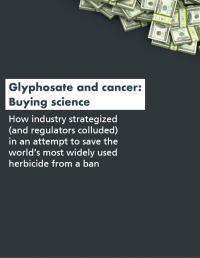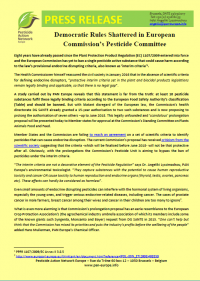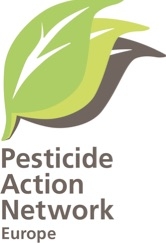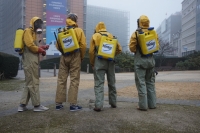Press releases
Monsanto and other glyphosate manufacturers appear to have distorted scientific evidence on the public health impacts of glyphosate in order to keep the controversial substance on the market, according to a new report released today by GLOBAL 2000 (Friends of the Earth Austria, member of PAN Europe) with the support of Avaaz, BUND, Campact, CEO, GMWatch, Pesticide Action Network (PAN) Europe, PAN Germany, and Umweltinstitut München.
Eight years have already passed since the Plant Protection Product Regulation (EC) 1107/2009 entered into force and the European Commission has yet to ban a single pesticide active substance that could cause harm according to the law’s provisional endocrine disrupting criteria, also known as ‘interim criteria’[1].
On the UN World Water Day (22nd March) and 3d day of the Pesticide Action Week1, PAN Europe takes the opportunity to highlight that pesticides are one of the main sources of pollution of European waters, causing degradation of our aquatic ecosystems and jeopardizing the future of EU water supplies.
Today, the UN Special Rapporteur on the right to food will present a report[1] before the UN Human Rights Council on the many issues posed by pesticides. Inefficient to guarantee food safety, toxic to human health and the environment, it is part of an agricultural model that is outdated and benefits only to multinationals and trade while EU farmers struggle to survive
Today, 12 years have passed since the Regulation on pesticide residues in food (Reg. 396/2005) was adopted and Commission, Council and EU parliament jointly decided that the harmful effects of mixtures of pesticide residues in food have to be taken into account in standard setting (Art.14.2[1]). Food Authority EFSA was assigned to develop the methods to assess mixture effects, but up to this day these methods are not published and mixture effects not taken into account. Current EU food standards for pesticide residues therefore are not safe.
Today (15 january) and tomorrow, Luxembourg will be the field of a battle opposing Bayer and Syngenta against the European Commission on the 2013 ban on neonicotinoids. The pesticide companies are attacking the decision from the Commission to protect bees by restricting the uses of imidacloprid, clothianidin and thiamethoxam.
“Campaigners and activists are meeting today in Brussels and other cities all across Europe (Madrid, Rome, Berlin and Paris) to launch a European Citizens Initiative (ECI) in order to put pressure on the EU to ban glyphosate, reform the EU pesticide approval process and set mandatory targets to reduce pesticide use in the EU. The main target is to collect at least one million signatures from Europeans and submit the petition before the Commission's next move to renew, withdraw or extend the EU licence of glyphosate.
The provision of false or incomplete information is a very common tactic the industry makes use of in order to cast doubt among decision makers[1]. After the November 2016 publication of 2 new EFSA reports reiterating the high risk of neonicotinoids on bees, the pesticide industry and industrial farming lobby are doubling their efforts to influence decision-makers and increase pressure on the European Commission to maintain their products on the market.
The substitution of animal testing of chemicals by non-animal testing prediction systems (NATPS) could lead to large-scale misuse of these systems, the new PAN Europe report "AOP, the trojan horse for industry lobby tools?" warns. The still immature NATPS were originally intended for chemicals in cosmetics where animal testing is banned.
Happy birthday! But, again, no gift!! The European Commission is two years late in delivering a simple report, failing to ensure implementation of the Sustainable Use Directive on Pesticides.




